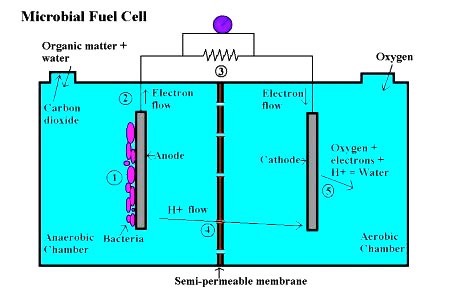
Microbial fuel cells (MFCs) are an up and coming form of alternative energy that utilize bacteria and waste to produce electricity by profiting off of changing electrical potentials. Generally speaking, MFC’s are constructed and operated the same way as the typical battery is; however, they use environmentally sustainable inputs rather than heavy metals such as wastewater or brew water.
Currently the world population is approximately 7.6 billion people, and that number will continue to grow. As the population increases, so does the demand for reliable energy. As we slowly run out of fossil fuels, many are looking for alternative forms of energy to continue powering the world. MFCs are an interesting form of alternative energy that can help ease the world’s dependency on fossil fuels.
This semester, the Microbial Fuel Cell (MFC) team has been working on assembling our MFCs. This includes obtaining carbon brushes for our anode, carbon cloth for our cathode, arduinos to record data, feedstock from the KBC, and keeping the iron-reducing bacteria alive until they are ready to be transferred into the cells themselves. The direction of this project has changed a bit from last semester. The team will now be determining if alive yeast cells in the feedstock will have any impact on energy production, as well as which type of brew can produce the greatest amount of energy. The team will then combine the results from both experiments and design a theoretical MFC that will produce the greatest amount of energy.